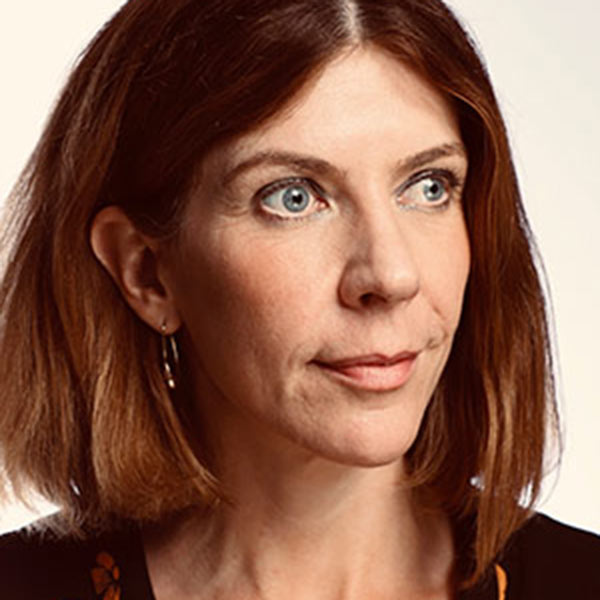
 As deputy head of the Extractive Industries Transparency Initiative, Eddie Rich has direct experience with some of the most pressing transparency issues of our era—trying to improve governance and counter the “resource curse” by promoting transparency in the management of government revenues from the extractives industries. Working primarily in resource governance in Africa and the Middle East, he attempts to resolve these issues through structured cooperation among governments, civil societies, and companies—a tall order given the high stakes and competing agendas.
As deputy head of the Extractive Industries Transparency Initiative, Eddie Rich has direct experience with some of the most pressing transparency issues of our era—trying to improve governance and counter the “resource curse” by promoting transparency in the management of government revenues from the extractives industries. Working primarily in resource governance in Africa and the Middle East, he attempts to resolve these issues through structured cooperation among governments, civil societies, and companies—a tall order given the high stakes and competing agendas.
Rich and his colleague Jonas Moberg developed a new approach to collective governance based on practical experience. The approach counters conventional wisdom on how parties with conflicting agendas can reach agreement, and argues that starting small, building momentum, and maintaining flexibility are essential in establishing trust. As a starting point, he says, it is better to have the “right people agreeing on the wrong things, than the wrong people agreeing on the right things.”
Rich and Moberg’s new book, Beyond Governments (Greenleaf Publishing 2015), offers lessons that can be applied to other global problems that require collective solutions, from poverty and inequality to climate change. Rich spoke with us about the book, the future of the EITI, and the wider implications for practitioners interested in driving change via collaboration.
Why did your decide to write this book?
There are examples of cross-sector processes and consultations, but very few real examples of successful joint decision-making. The reason for this is that it is really, really hard. In some sectors, like natural resources extraction, the stakes are high, there are a limited number of players, and there is so much overlap and confusion that progress requires getting everyone around the table. In these instances, a formal collective governance approach represents a way forward. But managing this process takes what we call “governance entrepreneurship.”
How can “governance entrepreneurship” be applied to collective governance?
The development world tends to emphasize agreement on overarching objectives. But this doesn’t work when you are dealing with organizations that have a lot of tension and conflict with each other. For example, if you could get the warring factions in Syria around the table, it would not be effective to try to establish agreement on the borders of a new map of Syria. However, if you can focus on something smaller, such as humanitarian access routes to the city of Homs, you might get agreement. From there, you can build enough trust to tackle bigger issues.
You need to give people a reason to come to the table in the first place, even if it seems insignificant. It is more important to have the right people agreeing on the wrong things, than the wrong people agreeing on the right things.
Another common perspective is that you need all players to be in an equal position of power, which means spending lots of time establishing voting systems, terms of office, and codes of conduct. Our view is that you just need to get on with the discussion, even in imperfect circumstances. By getting something tangible to discuss in front of everyone, that in its own right helps weaker parties build capacity.
There has to be a bottom line that allows for civil society to freely participate, but the process is dynamic and will drive progress and open up space and capacity.
How can companies improve their engagement with collective governance processes?
We recommend companies get out of the charity mindset and into a justice mindset, focused on ideas of equity and fairness—which means embracing the idea that citizens of resource-rich countries deserve to share in the benefits of these resources, and corporate measures should enable this. This means, for example, creating an environment where stakeholders are incentivized to make collective governance meaningful rather than just ticking some boxes to meet a standard. Nigeria should win praise from companies for disclosing and exploring how its state-owned companies operate and how allocations of oil money are spent at the state level. It creates a level playing field, informs the public, strengthens policy, and builds trust.
You present a theory of leadership that is much more about compromise and incremental change than traditional models that emphasize leading from the front. Do you think we need a new leadership model to deal with today’s challenges?
Yes! We are stuck in a Hollywood version of moral crusade leadership that leads to a lack of compromise. People want the EITI to whip the naughty boys and girls into shape, but this would set a standard so high that no one would have any real incentive to engage. You can’t just look at the stick, you need carrots, and you need to compromise in order to bring people to the table. We are constantly put in difficult situations, where knowing the best thing to do is unclear. But this complexity means we are talking about the right issues.
Given the nature of many of today’s challenges, we need a leadership model that is not too purist. In every single change process, you will always find a mix of reformers and forces of conservatism, and it isn’t always clear who is who. This means that sometimes you are hoodwinked, or that people will make commitments and then backtrack. It is obvious in principle that compromise is needed in such situations, but when you are making decisions and judgment calls daily, this is extremely difficult and you are going to make mistakes.
Outside of the natural resources industries, what are some areas where your model might be useful?
Our model is not a universal panacea. It is a mechanism of last resort and needs certain preconditions. There has to be a clear governance gap that can only be solved with collective decision-making, and there has to be anger. People have to have a lot to gain and a lot to lose, otherwise you will not maintain the energy to keep them at the table.
So our model has the potential to be used effectively when those preconditions exist. For example, one very contentious issue is transparency in international financial flows: Clearly, there is a lot of anger, and governments can’t tackle the problem alone. Another area is press regulation at the national level: Governments wish to regulate the media themselves but have clear conflicts of interest. International land acquisition is another: how to deal with the problem of large purchases of land for investment purposes that then lies fallow?
However, our model does offer guidance that should be useful to anyone seeking to drive solutions in high-stakes situations with competing agendas. A big attachment to a moral crusade can be harmful if you want to get things done. Today’s challenges require more nuance and compromise.
Let’s talk about how BSR can help you to transform your business and achieve your sustainability goals.
